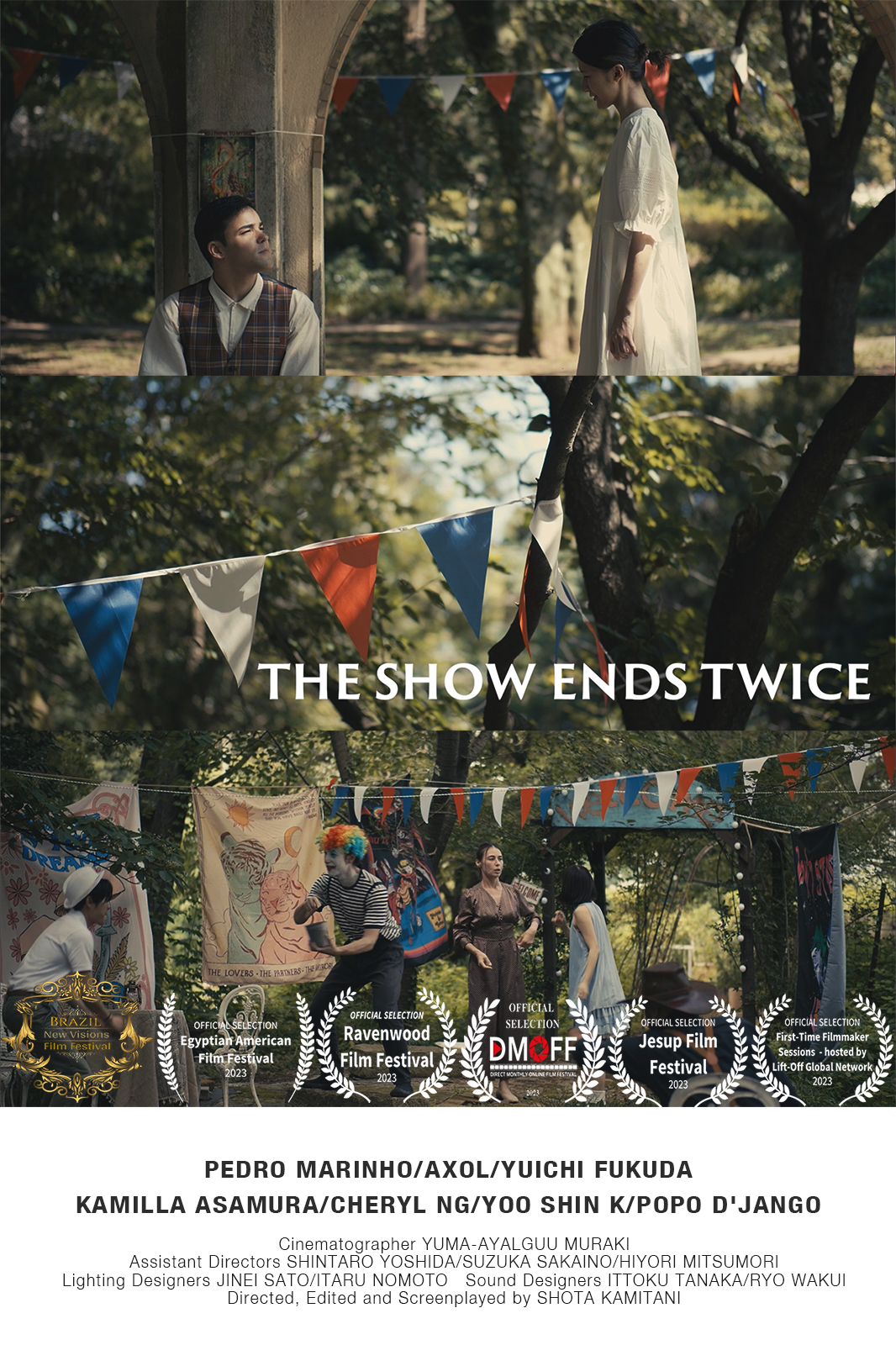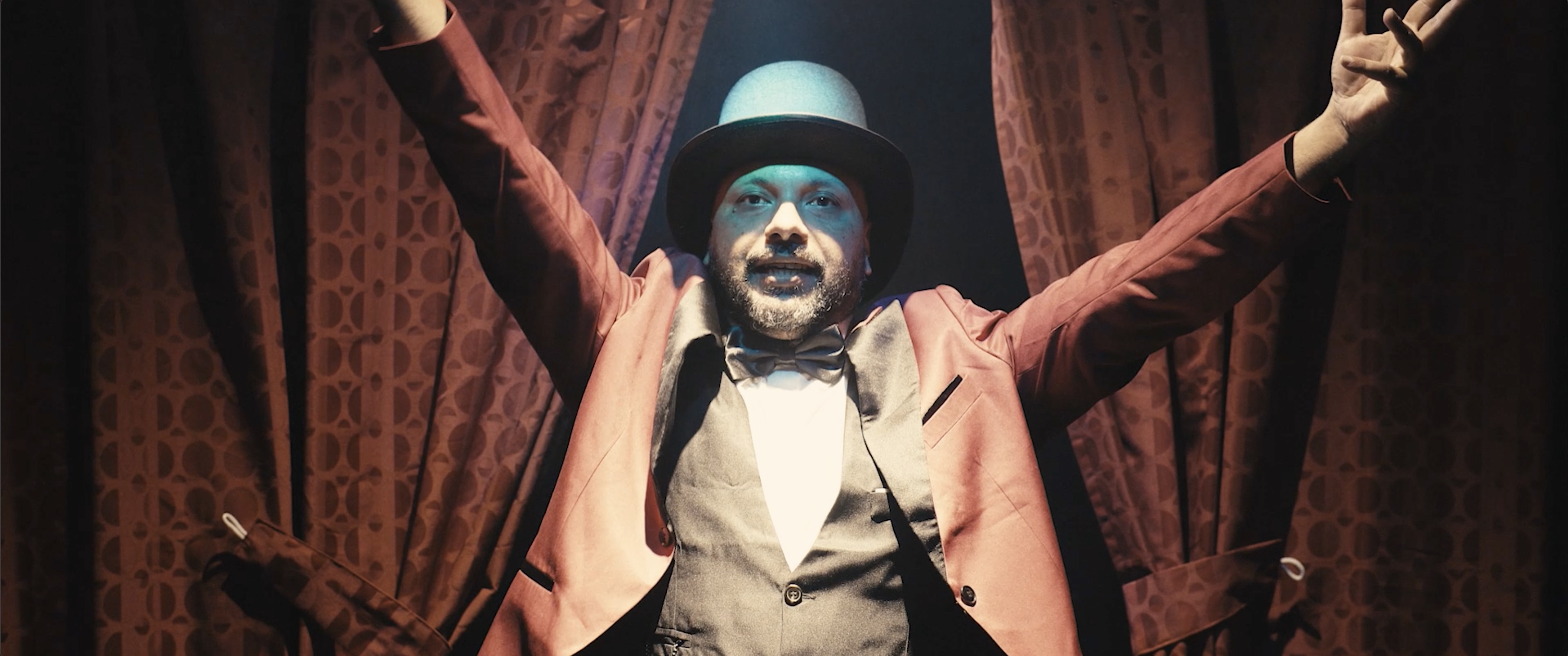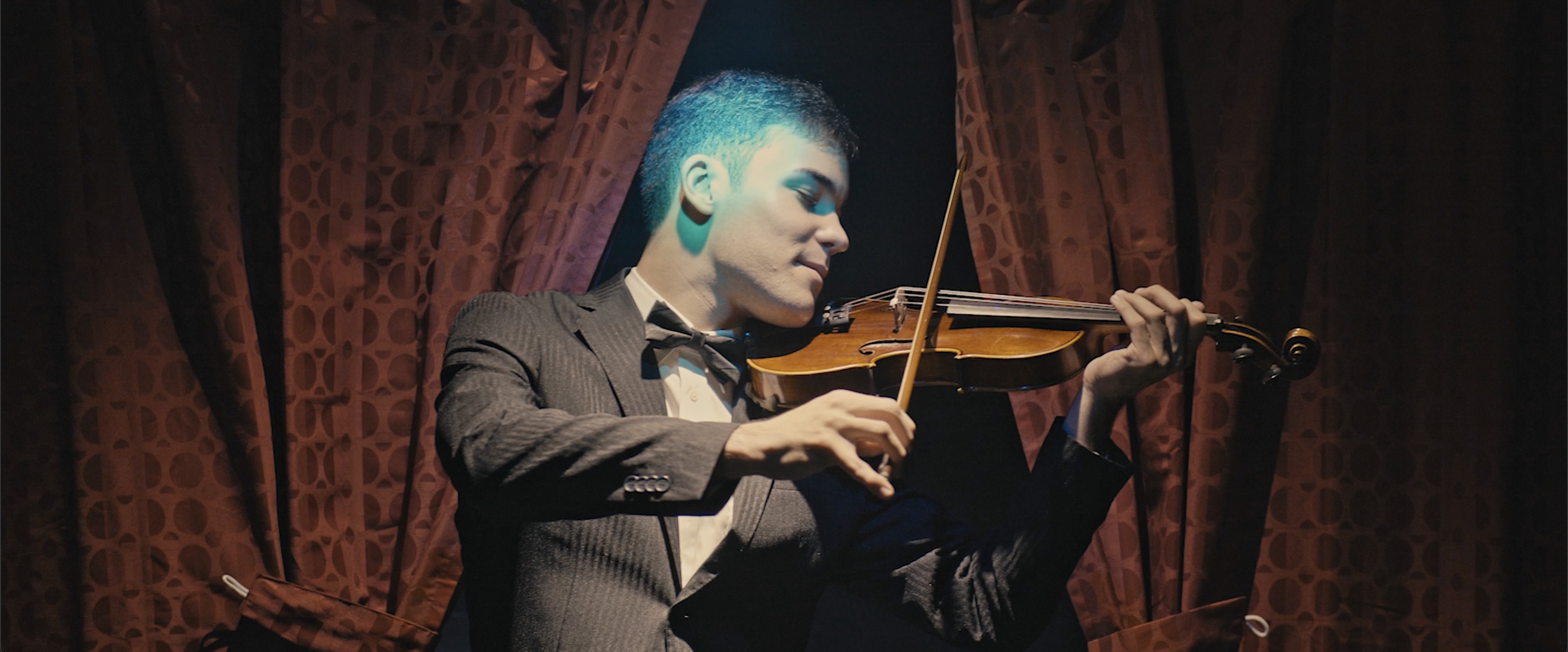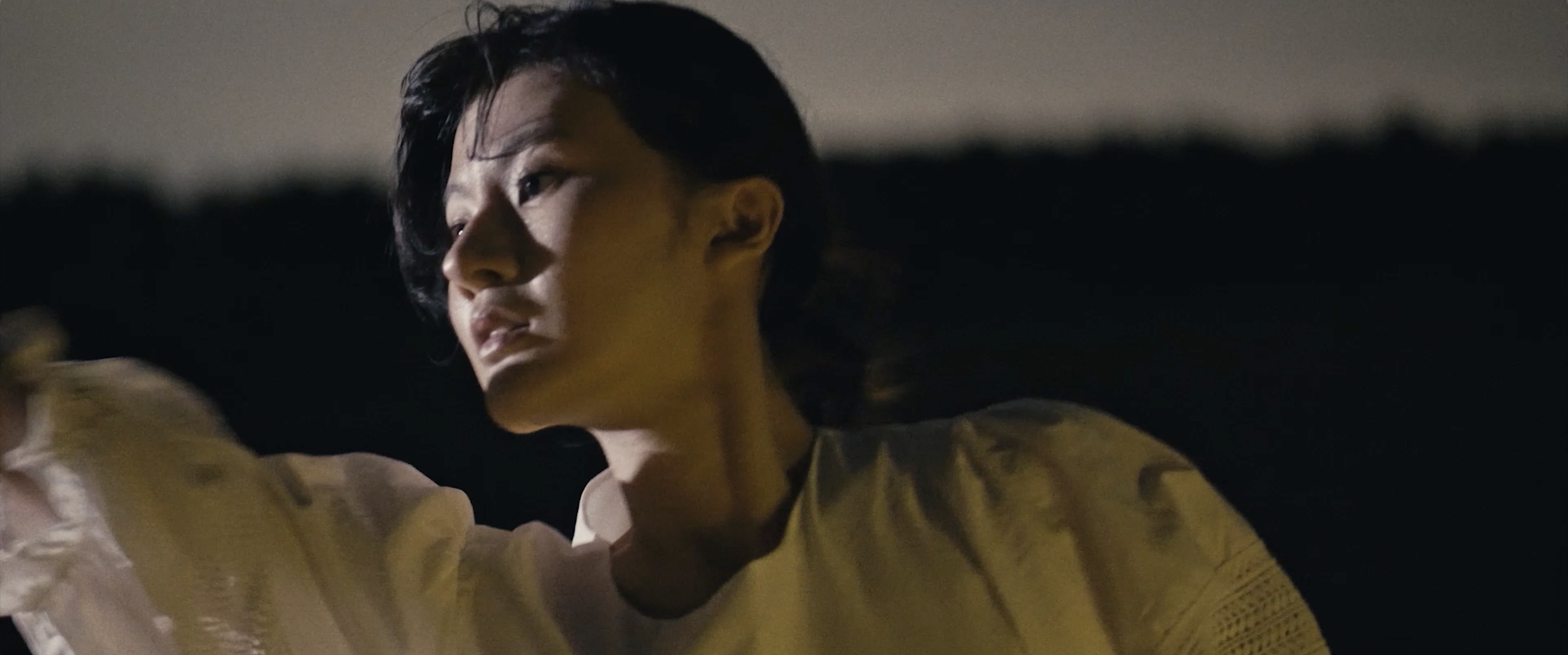SHOTA KAMITANI
I was born on August 7, 2001. My first experience in film production was during high school, when a friend and I created a movie for the cultural festival. Since then, I've been captivated by the allure of filmmaking and have continued this pursuit up to the present. Currently enrolled in the College of Arts and Sciences at the University of Tokyo, I took a one-year break during my third year to attend a specialized film school. I have a strong interest in fantasy films, and my favorite directors include Stanley Kubrick, Guillermo del Toro, and Tim Burton.
Your project has entered in our festival. What is your project about?
"The Show Ends Twice" is a short film of approximately 20 minutes. It was my graduation project from the film school, created in collaboration with my classmates. As it was our graduation project, I decided to explore the theme of the circus, which I had always been fascinated by, and crafted it into a fantasy film. Despite all filming locations being within Japan, we gathered English-speaking cast members and shot the film with an English script.

What are your ambitions with your project?
My dream is to create movies in Hollywood and around the world. Currently, I only have experience shooting in Japan, but I hope that by showcasing this film to audiences worldwide, I can gain opportunities to work on film productions abroad.

Tell us something about your shooting? What pleasantly surprised you?
During the stage of selecting shooting locations and setting up decorations, I had significant concerns about whether we could effectively portray the desired atmosphere. However, when the casts appeared and began acting, there was a moment where it felt like we had transitioned from Japan in 2023 to the American West Coast in the 1960s. And then I remember feeling the potential of our project.
For what group of spectators is your film targeted?
The protagonist of our film, Scott, struggles between dreams and reality, facing considerable turmoil. The dilemma of grappling with vastly different dreams and reality is something that can resonate with both young people and sometimes adults. This film depicts Scott's struggles and decisions amidst such turmoil. Therefore, I particularly hope that audiences facing similar dilemmas will watch it. However, as the film is fundamentally a fantasy film centered around the theme of the circus, I believe it can also be enjoyed by audiences who simply appreciate circuses or enjoy the fantasy genre.


Why should distributors buy your film?
There are few student films shot in Japan that are distributed worldwide, which I believe makes our film noteworthy. Additionally, the meticulously crafted world of our film sets it apart within the realm of independent cinema. It has qualities that can be appreciated by audiences unfamiliar with independent films, making it worth distributing in many places.
How would you specify your work? What characterizes your film?
In terms of the story, I believe the integration of reality and fiction is a defining feature of my film. While fantasy films often incorporate this fusion, in my film, I have been particularly focused on ensuring that while the setting may be fictional, the characters' struggles and emotions are as relatable and realistic as possible.
Technically, I place particular emphasis on the pacing of edits and color grading tailored to the film's world, which I consider distinctive aspects of my work.
Why did you decided to become a filmmaker?
When I was young, whenever I faced troubles regarding relationships, my future, or studies, my father would take me to the movies. There, I could forget reality and immerse myself in the world of films. By the end of the movie, my mind always felt lighter. This feeling remains the same even now as I've grown a bit older, and I believe it's the magic of movies. Therefore, I aspire to become a filmmaker who can use the magic of movies to entertain many people and sometimes heal their hearts.
Who is your role model?
There are few live-action film directors from Japan who have made a significant impact globally, so I don't have a clear role model. However, if I were to draw an analogy to the famous story of Picasso and Van Gogh, I aspire to be like Picasso. I believe that films are only complete when they reach the audience, and to achieve that, it's necessary to create works that captivate and engage them. In that sense, Picasso, who balanced art and commerce, is my role model.
Which movies are your favorites? Why?
I have many favorite films, including "Charlie and the Chocolate Factory," "The Shape of Water," "Tomorrowland," and "Real Steel." What I love about these films is that they transport me to another world while I'm watching them. They have a well-defined world, yet the characters are portrayed realistically, and I enjoy those aspects.
Where do you look for inspiration for your films?
I often find inspiration in fleeting moments in everyday life, where a single scene suddenly comes to me as inspiration. For example, in the case of this film, I envisioned a scene of a man playing the violin and a woman dancing by the seaside , and I built the story from there.
Which topics interest you the most?
The topic of the afterlife has always intrigued me. It's a world that we can't know about as long as we're alive, which makes it fascinating, and I find it interesting to explore the world of the living and the dead. This interest unconsciously led me to incorporate elements of the heroine Grace appearing as a deceased character in this film.
What do you consider your greatest achievement in your career?
The fact that "The Show Ends Twice" has received invitations, nominations, and awards at various film festivals worldwide is what I consider my greatest achievement. As a film intended for a global audience, the fact that it has been seen by so many people around the world feels like a significant accomplishment.
What do you consider most important about filming?
I believe it's crucial to consider the audience when making a film. While it's important for creators to have their own vision and message, if it becomes too obscure, it loses its meaning for the audience. Therefore, I think it's essential to maintain a balance between the creator's vision and the audience's perspective.
Which film technique of shooting do you consider the best?
I don't believe there's one particular technique that's most important. In filmmaking, I think the synergy of all techniques is crucial. For instance, no matter how beautiful a shot is, if the sound quality is poor, the audience won't fully experience it. Therefore, I consider all techniques equally important.
How would you rate/What is your opinion about current filmmaking?
I would rate it about 80 out of 100. I appreciate the pursuit of goals and messages in current filmmaking, but there are still many technical errors, which is why I deducted 20 points.
What can disappoint you in a movie?
Inserting unnecessary cuts without intention is something I strongly believe should be avoided. These cuts may convey unintended meanings to the audience, making it difficult for the filmmaker's message to come across. Therefore, I believe that every cut, indeed every element, should be thoughtfully considered as it inherently carries meaning and can influence the audience.
Who supports you in your film career?
My family, friends, and those around me always support my dreams and lend me their strength. Additionally, the staff of this film, who were my peers from film school, cooperated with the shooting every day, even though I couldn't offer much in terms of compensation.
What are the reactions to your film? (opinion of spectators, film critics, friends and family)
Fortunately, I receive mostly praise. Particularly, the portrayal of a 1960s American-style atmosphere despite being filmed in Japan is something that receives admiration from friends, family, and even film festival judges.
Have you already visited any of the prestigious film festivals?
Not yet. Due to submitting to international film festivals, I haven't had the opportunity to attend even if the film wins awards. I'm currently studying abroad in New Zealand starting this month, so I hope to broaden my horizons and attend various film festivals if given the chance.
What are your future plans in filmmaking carriere?
Ultimately, I want to become a director whose films are seen by people all over the world. Moreover, I aspire to create films that rank highly in the global box office. While I'm open to shooting anywhere, I currently feel that making an entrance into Hollywood is essential for achieving these goals.
Your project has entered in our festival. What is your project about?
"The Show Ends Twice" is a short film of approximately 20 minutes. It was my graduation project from the film school, created in collaboration with my classmates. As it was our graduation project, I decided to explore the theme of the circus, which I had always been fascinated by, and crafted it into a fantasy film. Despite all filming locations being within Japan, we gathered English-speaking cast members and shot the film with an English script.

What are your ambitions with your project?
My dream is to create movies in Hollywood and around the world. Currently, I only have experience shooting in Japan, but I hope that by showcasing this film to audiences worldwide, I can gain opportunities to work on film productions abroad.

Tell us something about your shooting? What pleasantly surprised you?
During the stage of selecting shooting locations and setting up decorations, I had significant concerns about whether we could effectively portray the desired atmosphere. However, when the casts appeared and began acting, there was a moment where it felt like we had transitioned from Japan in 2023 to the American West Coast in the 1960s. And then I remember feeling the potential of our project.
For what group of spectators is your film targeted?
The protagonist of our film, Scott, struggles between dreams and reality, facing considerable turmoil. The dilemma of grappling with vastly different dreams and reality is something that can resonate with both young people and sometimes adults. This film depicts Scott's struggles and decisions amidst such turmoil. Therefore, I particularly hope that audiences facing similar dilemmas will watch it. However, as the film is fundamentally a fantasy film centered around the theme of the circus, I believe it can also be enjoyed by audiences who simply appreciate circuses or enjoy the fantasy genre.


Why should distributors buy your film?
There are few student films shot in Japan that are distributed worldwide, which I believe makes our film noteworthy. Additionally, the meticulously crafted world of our film sets it apart within the realm of independent cinema. It has qualities that can be appreciated by audiences unfamiliar with independent films, making it worth distributing in many places.
How would you specify your work? What characterizes your film?
In terms of the story, I believe the integration of reality and fiction is a defining feature of my film. While fantasy films often incorporate this fusion, in my film, I have been particularly focused on ensuring that while the setting may be fictional, the characters' struggles and emotions are as relatable and realistic as possible.
Technically, I place particular emphasis on the pacing of edits and color grading tailored to the film's world, which I consider distinctive aspects of my work.
Why did you decided to become a filmmaker?
When I was young, whenever I faced troubles regarding relationships, my future, or studies, my father would take me to the movies. There, I could forget reality and immerse myself in the world of films. By the end of the movie, my mind always felt lighter. This feeling remains the same even now as I've grown a bit older, and I believe it's the magic of movies. Therefore, I aspire to become a filmmaker who can use the magic of movies to entertain many people and sometimes heal their hearts.
Who is your role model?
There are few live-action film directors from Japan who have made a significant impact globally, so I don't have a clear role model. However, if I were to draw an analogy to the famous story of Picasso and Van Gogh, I aspire to be like Picasso. I believe that films are only complete when they reach the audience, and to achieve that, it's necessary to create works that captivate and engage them. In that sense, Picasso, who balanced art and commerce, is my role model.
Which movies are your favorites? Why?
I have many favorite films, including "Charlie and the Chocolate Factory," "The Shape of Water," "Tomorrowland," and "Real Steel." What I love about these films is that they transport me to another world while I'm watching them. They have a well-defined world, yet the characters are portrayed realistically, and I enjoy those aspects.
Where do you look for inspiration for your films?
I often find inspiration in fleeting moments in everyday life, where a single scene suddenly comes to me as inspiration. For example, in the case of this film, I envisioned a scene of a man playing the violin and a woman dancing by the seaside , and I built the story from there.
Which topics interest you the most?
The topic of the afterlife has always intrigued me. It's a world that we can't know about as long as we're alive, which makes it fascinating, and I find it interesting to explore the world of the living and the dead. This interest unconsciously led me to incorporate elements of the heroine Grace appearing as a deceased character in this film.
What do you consider your greatest achievement in your career?
The fact that "The Show Ends Twice" has received invitations, nominations, and awards at various film festivals worldwide is what I consider my greatest achievement. As a film intended for a global audience, the fact that it has been seen by so many people around the world feels like a significant accomplishment.
What do you consider most important about filming?
I believe it's crucial to consider the audience when making a film. While it's important for creators to have their own vision and message, if it becomes too obscure, it loses its meaning for the audience. Therefore, I think it's essential to maintain a balance between the creator's vision and the audience's perspective.
Which film technique of shooting do you consider the best?
I don't believe there's one particular technique that's most important. In filmmaking, I think the synergy of all techniques is crucial. For instance, no matter how beautiful a shot is, if the sound quality is poor, the audience won't fully experience it. Therefore, I consider all techniques equally important.
How would you rate/What is your opinion about current filmmaking?
I would rate it about 80 out of 100. I appreciate the pursuit of goals and messages in current filmmaking, but there are still many technical errors, which is why I deducted 20 points.
What can disappoint you in a movie?
Inserting unnecessary cuts without intention is something I strongly believe should be avoided. These cuts may convey unintended meanings to the audience, making it difficult for the filmmaker's message to come across. Therefore, I believe that every cut, indeed every element, should be thoughtfully considered as it inherently carries meaning and can influence the audience.
Who supports you in your film career?
My family, friends, and those around me always support my dreams and lend me their strength. Additionally, the staff of this film, who were my peers from film school, cooperated with the shooting every day, even though I couldn't offer much in terms of compensation.
What are the reactions to your film? (opinion of spectators, film critics, friends and family)
Fortunately, I receive mostly praise. Particularly, the portrayal of a 1960s American-style atmosphere despite being filmed in Japan is something that receives admiration from friends, family, and even film festival judges.
Have you already visited any of the prestigious film festivals?
Not yet. Due to submitting to international film festivals, I haven't had the opportunity to attend even if the film wins awards. I'm currently studying abroad in New Zealand starting this month, so I hope to broaden my horizons and attend various film festivals if given the chance.
What are your future plans in filmmaking carriere?
Ultimately, I want to become a director whose films are seen by people all over the world. Moreover, I aspire to create films that rank highly in the global box office. While I'm open to shooting anywhere, I currently feel that making an entrance into Hollywood is essential for achieving these goals.
